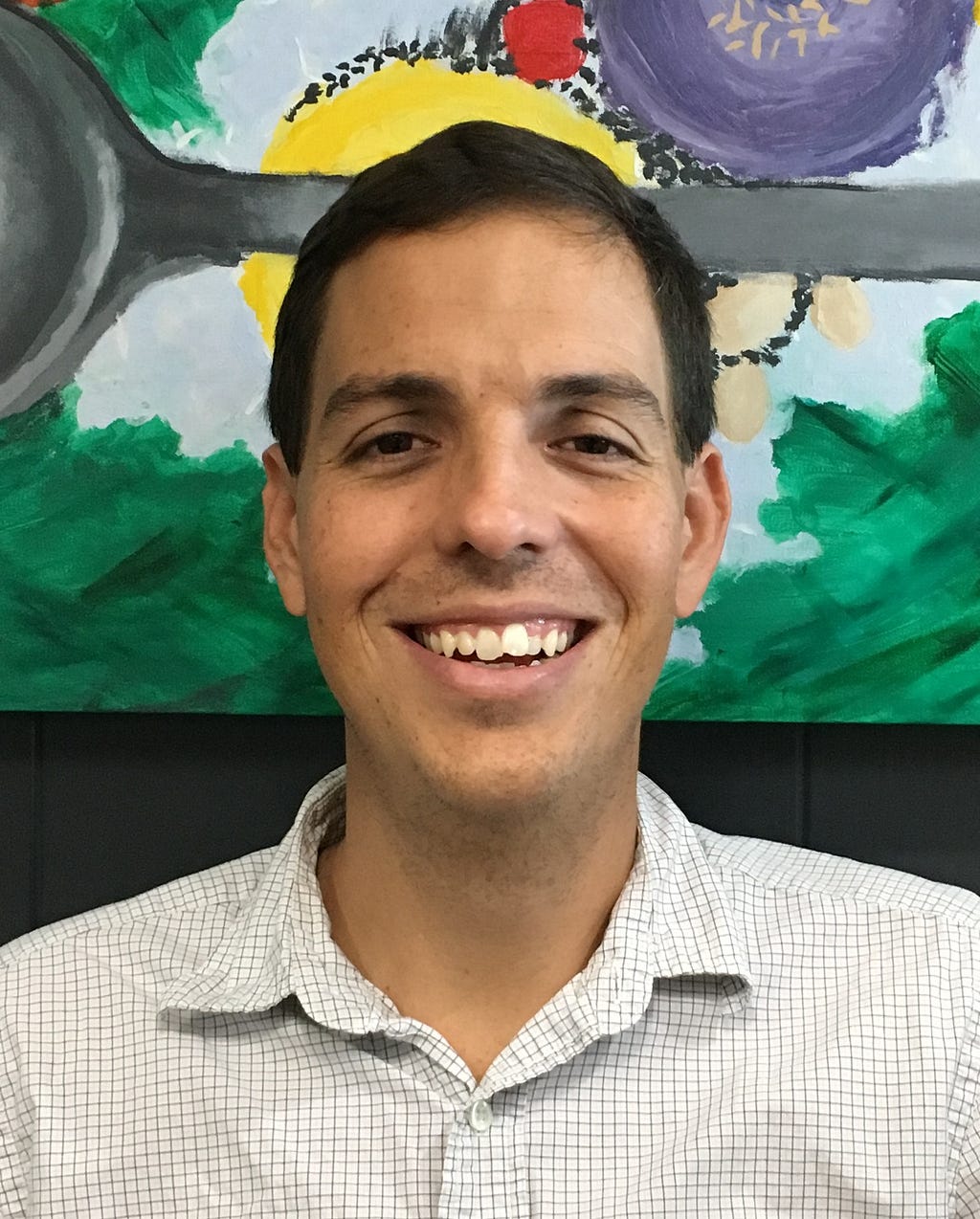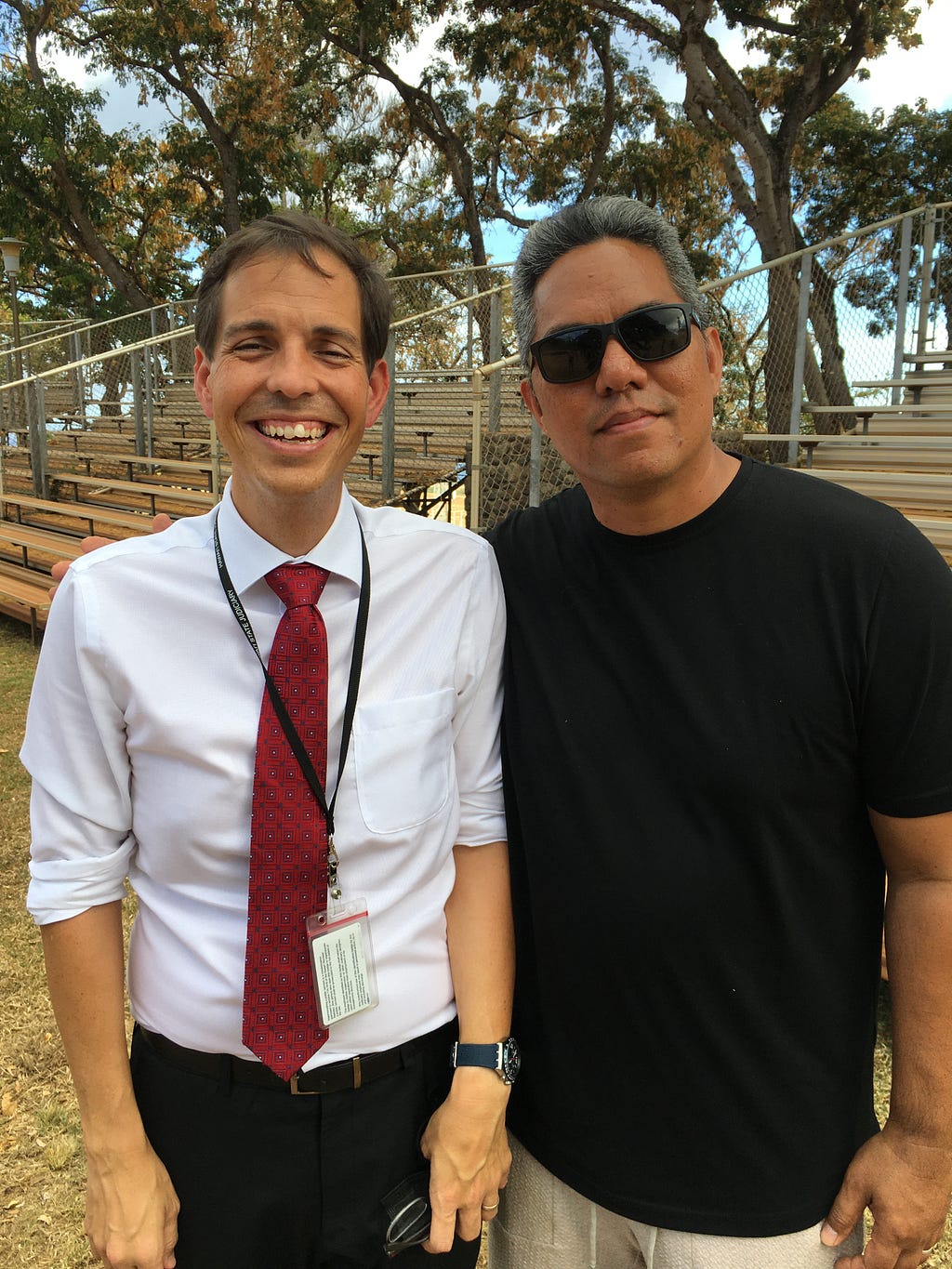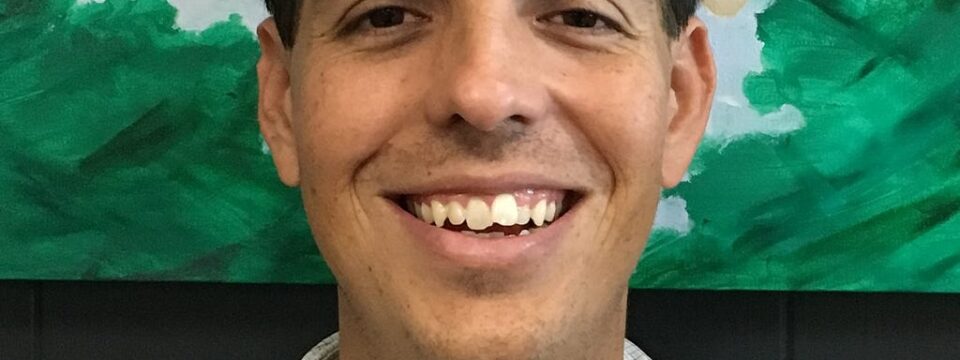Social Impact Heroes: Why & How Lance Collins of Lance D Collins Law Office Is Helping To Change Our World

The journey is more important than the destination. Striving towards goals is necessary but it is the process of fulfilling those goals that is the training for our next adventure and will remain with you after the goal achieved has long disappeared into the past.
As part of my series about “individuals and organizations making an important social impact”, I had the pleasure of interviewing attorney and Hawai’i activist/historian Lance Collins.
Of mixed Filipino descent, Lance grew up in Maui, received a Ph.D. from the University of Hawai’i and lives there today. He is a leading advocate for local history and culture and is the series editor of 15 (and counting) books about West Maui, including Tourism Impacts West Maui, Social Change in West Maui, Civil Society in West Maui and Historical Investigations in West Maui. He is also a Nā Hōkū Hanohano award-winning music producer. With his most-recent Kāwili albums, he explores the mashup of traditional Hawaiian and Philippine soundscapes.
A lawyer for two decades, Lance is in private practice, specializing in public interest litigation, good government and Hawaiian rights. He currently serves as the Chair of the HSBA Appellate Section.
Lance wrote and produced the film, My Partner. Filmed entirely in Hawai’i, it was the last film to shoot on location in Lahaina prior to the devastating fire in 2023. My Partner grapples with many of the social issues facing Hawai’i’s people today, while serving as a time capsule picture of Lahaina. He worked with director Keli’i Grace, utilizing a community-based filmmaking process that centered on native values and a commitment to authenticity of all segments of the West Maui community represented in the film.
Thank you so much for joining us in this interview series! Can you tell us a story about what brought you to this specific career path?
I was actually in graduate school and doing community organizing and my friends and family sort of pushed me to go to law school. I guess in their view, the kind of community work and my temperament would be helped by me being a licensed attorney. Twenty years later, I’d say they were probably right. But it’s also given me the space to do the other important work such as the book series I edit on West Maui history and culture, the music albums of Hawaiian and Philippine music I produce and the film projects I write and produce like our recently released film, My Partner.
Can you share the most interesting story that happened to you since you began leading your company or organization?
In 2016, I took over a Hawaiian land case for a native family whose attorney had unexpectedly passed. The land development company sued them claiming the family’s land, on which they lived and farmed, was owned by the company. We ended up having a jury trial, which was really about whether the sugar plantation at the end of the 19th century actually acquired an interest in the land. The jury decided in favor of the family. When I agreed to take the case, I definitely didn’t expect to conduct a trial on events in the 19th century involving such an important period in Hawai’i’s history.
It has been said that our mistakes can be our greatest teachers. Can you share a story about the funniest mistake you made when you were first starting? Can you tell us what lesson you learned from that?
When I first started practicing law, there was a dispute over control of the local Filipino community center. The group that had been unlawfully pushed out had gone around to all the established attorneys who either said no or asked for too much money.
They came to me, maybe out of desperation. These were all respected leaders in the community, so I agreed to a very modest flat fee for the work. I assumed that it just would require a rational discussion with the other side about the error in their approach and be resolved. After all, the other group had well respected leaders among them too.
That was very naive to say the least. The litigation went on for over a year and, despite the potluck dinners my clients organized when I gave updates to them, in the end I maybe earned about 25 cents per hour for my efforts and a lot of unexpected work.
The two lessons I learned was that important cases should be taken regardless of the people’s ability to pay and that you never know where a case will take you.
Can you describe how you or your organization is making a significant social impact?
My law work, book series, music albums and scholar articles all help to build a framework for alternative pathways to the good life and social justice. My recent film project, My Partner, ties many of these strands together into a film that demonstrates those pathways. My Partner reflects the everyday lives of people in my community who do not see themselves or their lives reflected in media anywhere. And it’s enabled us to share with the rest of the world a snapshot of how life is for Hawai’i’s young people.
Can you tell us a story about a particular individual who was impacted or helped by your cause?
A low-income affordable housing project in Lahaina called Front Street Apartments — the developer of which had received a bunch of tax breaks/credits in 2000 — tried to get out of its 30-year commitment of affordability made 15 years earlier. Our state, for reasons still unknown today, signed a document allowing them to do that.
The senior citizens and workers who lived in the project asked me to help. I took the case because otherwise hundreds of people were going to get evicted as rent was increased to market rate. We won. The federal court said that the developer couldn’t get out of the affordability obligation and the state didn’t have the power to allow them. An agreement was reached between the developer and the state that actually extended the affordability for 50 years.
Are there three things the community/society/politicians can do to help you address the root of the problem you are trying to solve?
1. Become a foster parent, in particular of older children and teenagers who are the kids that are least likely to be paired with foster parents and remain in group homes.
2. Take time to learn your family’s history and the history of the place you live.
3. Find ways to better understand people you disagree with and look for areas of agreement and commonality.
How do you define “Leadership”? Can you explain what you mean or give an example?
Lao Tzu said, “But of a good leader, who talks little, when his work is done, his aims fulfilled, they will all say, ‘We did this ourselves.’”

What are your “5 things I wish someone told me when I first started” and why. Please share a story or example for each.
- People in positions of power often lack the courage to do the right thing at the right time. It is still important to insist that they do the right thing.
- Our awareness and understanding is limited. It is important that our confidence in action be founded in the humility of knowing we act from an incomplete picture of the state of things.
- The journey is more important than the destination. Striving towards goals is necessary but it is the process of fulfilling those goals that is the training for our next adventure and will remain with you after the goal achieved has long disappeared into the past.
- Remember that life is constantly changing. Never forget that all that is mine, beloved and pleasing will become otherwise and will become separated from me.
- When in doubt of what do next, follow C.G. Jung’s advice and “do with conviction the next and most necessary thing, [in that way] you are always doing something meaningful and intended by fate.”
You are a person of enormous influence. If you could inspire a movement that would bring the most amount of good to the most amount of people, what would that be? You never know what your idea can trigger. 🙂
It would be great to provide more opportunities for working class young people from different places and countries to have sustained in-person interactions with one another — similar to how the two main characters in My Partner are forced to enter into sustained interaction and learn about each other and their communities.
I’m not talking about existing student exchange programs between wealthy countries or just sending kids from the colonial periphery to the imperial capital but about mass youth exchanges between the youth of countries that don’t have a common linguistic or apparent historic connection.
In my view, such interactions can foster new ideas on how to solve local problems as well as greatly strengthen friendship between nations.
Can you please give us your favorite “Life Lesson Quote”? Can you share how that was relevant to you in your life?
“It is in the nature of things that joy arises in a person free from remorse.” This is part of a much longer quote of the Buddha discussing the conditions for happiness and how our habits and experiences of everyday life are built on a complex series of interconnected feelings and attitudes. If we can adjust those feelings and attitudes or what they are conditioned on, we can change how we experience our lives.
Is there a person in the world, or in the U.S. with whom you would like to have a private breakfast or lunch with, and why? He or she might just see this, especially if we tag them. 🙂
Simu Liu. I would love to make a movie with him or one starring him or both!
How can our readers further follow your work online?
https://www.facebook.com/mypartnerthemovie
https://www.instagram.com/mypartnerthemovie
This was very meaningful, thank you so much. We wish you only continued success in your great work!
Social Impact Heroes: Why & How Lance Collins of Lance D Collins Law Office Is Helping To Change… was originally published in Authority Magazine on Medium, where people are continuing the conversation by highlighting and responding to this story.
